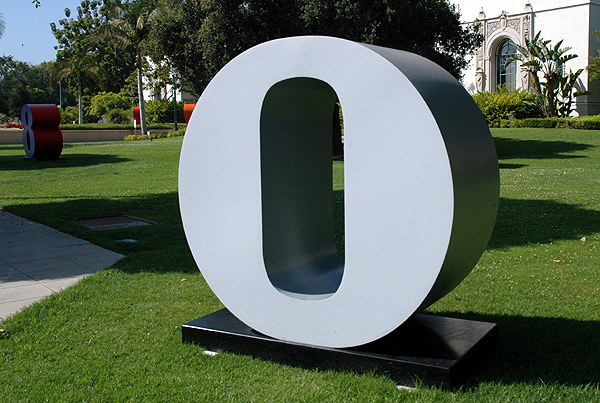Topic: The Law
Legal Matters: Dealing with Canadians and Shoplifters
A long time ago the case of Maher Arar was discussed in Just Above Sunset here - December 21, 2003: Bitter Brits. Arar was the Canadian citizen we secretly deported to Syria. We don't do torture. They do. Torture is not US policy. And we thought he was a bad guy. We picked him up at the Newark airport when he was changing planes. But, damn, is seems he wasn't as bad guy. We had bad information. As the 2003 item points out, his crime was that his mother's cousin had joined the Muslim Brotherhood long after Maher Arar moved to Canada. And after ten months of torture and incarceration in a quite tiny cell in Syria, he was allowed to return to his home in Canada.
Oops. Now he is suing the US government. He is not happy.
Well, we were just being careful, and a bit overly enthusiastic. Understandable, of course.
Wonder of wonders, his case is finally being heard. You see there was rental lease agreement from 1997 which he had co-signed and that seemed to indicate he might have known someone who knew someone who… oh heck, the full details and all the supporting documentation are here if you're at all interested.
What's interesting now is the summary of our government's position, now that we're in court, as reported in the New York Times, Wednesday, August 10, 2005 - U.S. Defends Detentions at Airports (byline Nina Bernstein) -
You have to love the contentions here, especially the contention the suit should be dismissed because we know stuff we cannot tell even the judge. You have to trust us on this.Foreign citizens who change planes at airports in the United States can legally be seized, detained without charges, deprived of access to a lawyer or the courts, and even denied basic necessities like food, lawyers for the government said in Brooklyn federal court yesterday.
The assertion came in oral arguments over a federal lawsuit by Maher Arar, a naturalized Canadian citizen who charges that United States officials plucked him from Kennedy International Airport when he was on the way home on Sept. 26, 2002, held him in solitary confinement in a Brooklyn detention center and then shipped him to his native Syria to be interrogated under torture because officials suspected that he was a member of Al Qaeda.
Syrian and Canadian officials have cleared Mr. Arar, 35, of any terrorist connections, but United States officials maintain that "clear and unequivocal" but classified evidence shows that he is a Qaeda member. They are seeking dismissal of his lawsuit, in part through the rare assertion of a "state secrets" privilege.
Judge David G. Trager of United States District Court of course prepared written questions for lawyers on both sides to address further, including one that focused on the fellow's accusations of illegal treatment in New York. Arar says he was "deprived of sleep and food and was coercively interrogated for days at the airport and at the Metropolitan Detention Center in Brooklyn" - and he was, of course, not allowed to call a lawyer, his family or the Canadian consul.
Trager: "Would not such treatment of a detainee - in any context, criminal, civil, immigration or otherwise - violate both the Constitution and clearly established case law?"
Mary Mason, senior trial lawyer for the government, "it would not."
At most? Seems like she's saying he was lucky he didn't get the New York police broomstick up the ass treatment - but he was Canadian, not Haitian.Legally, she said, anyone who presents a foreign passport at an American airport, even to make a connecting flight to another country, is seeking admission to the United States. If the government decides that the passenger is an "inadmissible alien," he remains legally outside the United States - and outside the reach of the Constitution - even if he is being held in a Brooklyn jail.
Even if they are wrongly or illegally designated inadmissible, the government's papers say, such aliens have at most a right against "gross physical abuse."
But here's a cool exchange:
The counterarguments came form David Cole, a law professor at Georgetown University, representing Arar. His notion was that the government had denied Arar "a meaningful chance to be heard" - refusing to let him call a lawyer initially, and later by sort of lying to the lawyer about his whereabouts. You see, Arar, who had been told he would be deported to Canada, was not handed a final order sending him to Syria until he was in handcuffs on the private jet heading out over the Atlantic. And we told his lawyer that he had been sent to a jail in New Jersey. Fooled ya!Under immigration law, Ms. Mason asserted, Mr. Arar was afforded "ample" due process when he was given five days to challenge an order finding him inadmissible.
"The burden of proof is on the alien to demonstrate his admissibility," Ms. Mason said, "and he did not do that."
"Do you do this to all people on a connecting flight?" Judge Trager asked, raising his eyebrows.
"Yes, all have to show admissibility," Ms. Mason replied. …
Cole - "We can't take a citizen, pick him up at J.F.K. and send him to Syria to be tortured. We can't hold against Mr. Arar the failure to file a motion for review when he's locked up in a gravelike cell in Syria."
Wanna bet?
Other issues?
That's a real good question.Dennis Barghaan, who represents former Attorney General John Ashcroft, one of the federal officials being sued for damages in the case, argued that Congress and recent judicial decisions tell federal courts "keep your nose out" of foreign affairs and national security questions, like those in this case.
At several points the judge seemed to echo such concerns. He said he had refused to read a letter from the plaintiffs detailing testimony before a Canadian board of inquiry into Mr. Arar's case because he did not know how to deal with questions that might require the government to confirm or deny classified information.
"How am I going to handle that?" he asked, rubbing his forehead and furrowing his brow before adjourning the hearing.
Tresy, over at Sisyphus Shrugs (great name for a commentary site) suggests this is a little too Kafkaesque for her taste and wonders why this isn't get more play in the media:
Our friend, the high-powered Wall Street attorney, commented all this cannot be good for tourism. Maybe it will improve sales of the collected works of that Czech-born German-speaking writer, Kafka - and we can all read "The Trial" (1914). Maybe it will revive interest in that 1967 television series The Prisoner. Not much else good will come of it all.You would think that our government kidnapping the citizen of a neighboring democracy and sending him to be tortured, by an official supporter of terrorism no less, simply because of a signature on a rental lease agreement, would have some newsworthiness. Too bad Arar wasn't a pretty white woman. …
I guess we shouldn't be surprised that a government that claims the right to imprison suspects without any due process on grounds of national security would claim immunity from legal process on the same ground when the tables are turned. Still, it takes a bit of chutzpah to claim "clear and unequivocal evidence" that the plaintiff, now walking around free, is a terrorist. Sending him to Syria to be tortured is just what you do with obviously guilty people, you see.
Welcome to America. Have a nice trip.
But finally, the guy is a Canadian, and we've been unhappy with the Canadians for a long time. In an April 27th 2004 radio debate with a Canadian journalist, Bill O'Reilly threatened to lead a boycott of Canadian goods if Canada didn't deport two American military deserters, saying that his previous boycott of French goods - the one he thought-up and championed - cost France billions of dollars in lost export business. (See this - it didn't.) And although they sent troops to fight beside us in Afghanistan, Canada took a pass on Iraq. Seems they weren't impress with the WMD argument, or felt the pressing need for an immediate war. And now those Canadian folks have approved gay marriage and made it all legal.
Like we care what happens to this Canadian?
__
Other legal matter for the week:
Answers sought in death outside Wal-Mart
Man accused of theft begged to be let up from hot pavement, witness says
Robert Crowe and S.K. Bardwell, Houston Chronicle, August 9, 2005, 8:49 PM
Liability here? Or is the business of America business?A man suspected of shoplifting goods from an Atascocita Wal-Mart - including diapers and a BB gun - had begged employees to let him up from the blistering pavement in the store's parking lot where he was held, shirtless, before he died Sunday, a witness said.
An autopsy for the man, identified as Stacy Clay Driver, 30, of Cleveland, was scheduled for Monday, but officials said results probably would be delayed by a wait for toxicology tests.
Driver's family, as well as one emergency worker, are questioning company procedure, including whether Wal-Mart workers administered CPR after they realized he needed medical attention.
When Atascocita Volunteer Fire Department paramedics arrived, Driver was in cardiac arrest, said Royce Worrell, EMS director. Worrell said Monday he heard from investigators that Wal-Mart employees administered CPR to Driver, but he was not sure that happened.
"When we got there, the man was facedown (in cardiac arrest) with handcuffs behind his back," Worrell said. "That's not indicative of someone given CPR."
Wal-Mart has been getting a lot of bad press lately. There was the shooting-the-cats business (here) and the big class-action discrimination lawsuit (and by "big" we're talking about 1.6 million plaintiffs) - and now this death-to-shoplifters enthusiasm. Perhaps questioning company procedure is in order.
On the other hand, too much regulation of business hurts the economy. And we love those low prices.
Posted by Alan at 18:06 PDT
|
Post Comment |
Permalink
Updated: Thursday, 11 August 2005 18:07 PDT
home









